Evaluation, Publications
French archaelogy: Hcéres publishes its first "Synthesis and future perspectives" report
Published on
At the request of the Ministry for Higher Education, Research and Innovation and the Ministry for Culture, Hcéres recently published a “synthesis and future perspectives” report containing a series of proposals for boosting the international reputation and influence of French research in the field of archaeology. In his opening remarks at the official launch, Michel Zink – Permanent Secretary of the Académie des Inscriptions et Belles-Lettres, member of the Académie Française – was keen to point out that reading the report had reminded him once again of the pre-eminent position which French archaeology occupies in the world.
Drafted by a panel of 9 French and international experts, chaired by Henri-Paul Francfort and coordinated by Claudio Galderisi, this report contains a description of France’s 102 research units active in the field of archaeology, taking into account the historical periods and geographical zones in their entirety. The report also provides an overview of the various theoretical and methodological approaches encountered in the discipline. “In order to make full use of the results of peer-conducted evaluations, we invented a whole new methodology,” explains Pierre Glaudes, Director of the Department of Research Evaluation at Hcéres.
Placing great emphasis on consultation with the scientific community and main stakeholders, the committee drew upon:
- the evaluation reports and summaries produced by Hcéres during the most recent assessment cycle (2014 to 2018);
- interviews with the major players in the field of archaeological research;
- outlook reports provided by the CNRS and the Ministry for Europe and International Affairs, as well as the principal sources of “grey literature.”
The report also contains a section devoted to future perspectives for the discipline, identifying environmental interactions and scientific cooperation initiatives conducive to an effective policy of national and international partnerships.
The appendices to this publication include a bibliometric analysis of France’s published output in the field of archaeology, conducted by the Science and Technology Observatory.
In the conclusion to this report, the committee is at pains to point out the remarkable scientific standing of French archaeology in the international archaeological community, its effective organisation, the diverse array of collaborations in place and the substantial number of people (more than 4,000) working in the field of archaeological research in France.
“French archaeology has fantastic potential which needs to be safeguarded and developed, particularly at the international level. The future of the discipline will be shaped by strengthening the bonds between its traditional epistemic and scientific dimensions,” explains Henri-Paul Francfort.
“This report will help to boost the reputation and visibility of the archaeological sciences,” asserts Michel Cosnard, adding that, “this is the first report of its kind, looking at an academic discipline in its entirety. It will be followed by two more synthesis reports in 2020, one on mathematics and the other on genomics and epigenomics.”
Focus on…
- Read the “synthesis and future perspectives” report on archaeology in France
The report is structured into 4 sections:- 1) A history of the development of French archaeological research;
- 2) Presentation of the governing bodies and stakeholders who oversee the discipline; general overview of the French archaeological sector;
- 3) The current state of the discipline, including contributions from grey literature and official documents;
- 4) Prospects for the international standing of French archaeological research
-
The 9 members of the “synthesis and future perspectives” committee for French archaeology
Coordinated by Claudio Galderisi, Professor of Medieval French Language and Literature (Université de Poitiers) and a scientific adviser to Hcéres, the committee was comprised of:-
Béatrice André-Salvini, National Heritage Curator;
-
Brigitte Boissavit-Camus, Professor of Medieval Archaeology and Art History – Université Paris Nanterre;
-
Ursula Brosseder, specialist in the Iron and Bronze Age Civilisations of Central Asia, director of a field research programme in Mongolia;
-
Marie-Brigitte Carre, senior researcher with the CNRS;
-
Pascal Depaepe, archaeologist, Regional Director of INRAP Hauts-de-France;
-
Hubert Forestier, Professor of Prehistory at the Muséum National d’Histoire Naturelle, member of the Commission for International Archaeological Excavations
-
Henri-Paul Francfort, member of the Académie des Inscriptions et Belles-Lettres, Emeritus Director of the CNRS, President of this committee;
-
Jean Guilaine, former CNRS research director, Emeritus Professor of the Collège de France and the École des Hautes Études en Sciences Sociales, member of the Académie des Inscriptions et Belles-Lettres;
-
Philippe Walter, chemist/physicist specialising in the study of cultural artefacts, CNRS research director.
-
- Key Figures
- 102 research units identified and classified;
- Over 4,000 people working in the field of archaeological research;
- 18 interviews conducted with directors and key stakeholders in French archaeological research.



